7.8 Take Action – Take Charge of Your Learning Experience
Reflective Practice
- How can I apply what I now know now to my own learning?
- How can I make decisions about my own learning?
For me one of my best strategies for success has been setting up structures for accountability. Sitting at the front of the class is a micro version of this, by being at the front of the class I feel as if pulling out my phone or looking disinterested is ruder and it keeps me accountable to pay full attention.
The larger version of this for me would be both the accountability of workout trackers the volleyball team has set up with the Fanshawe gym and letting my girlfriend know my assignment schedule as well as what I hope to accomplish in a given period of time (today, or this week). These structures of accountability allow for true feedback on when I am slipping and when I am having success which have been paramount for achieving what I want to achieve.
Rob Pass, Fanshawe College Student
Making Decisions About Your Own Learning
As a learner, the kinds of materials, study activities, and assignments that work best for you will derive from your own experiences and needs (needs that are both short-term as well as those that fulfill long-term goals). In order to make your learning better suited to meet these needs, you can use the knowledge you have gained in this chapter to make decisions concerning your own learning.
These decisions can include personal choices in learning materials, how and when you study, and most importantly, taking ownership of your learning activities as an active participant and decision maker. In fact, one of the main principles emphasized in this chapter is that students not only benefit from being involved in planning their instruction, but learners also gain by continually evaluating the actual success of that instruction. In other words: Does this work for me? Am I learning what I need to by doing it this way?
While it may not always be possible to control every component of your learning over an entire program, you can take every opportunity to influence learning activities so they work to your best advantage.
What follows are several examples of how this can be done by making decisions about your learning activities based on what you have already learned in this chapter.
Make Mistakes Safe
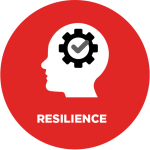 Create an environment for yourself where mistakes are safe and mistakes are expected as just another part of learning. This practice ties back to the principles you learned in the section on resilience. The key is to allow yourself the opportunity to make mistakes and learn from them before they become a part of your grades.
Create an environment for yourself where mistakes are safe and mistakes are expected as just another part of learning. This practice ties back to the principles you learned in the section on resilience. The key is to allow yourself the opportunity to make mistakes and learn from them before they become a part of your grades.
You can do this by creating your own learning activities that you design to do just that. An example of this might be taking practice quizzes on your own, outside of the more formal course activities. The quizzes could be something you find in your textbook, something you find online, or something that you develop with a partner. In the latter case you would arrange with a classmate for each of you to produce a quiz and then exchange them. That particular exercise would serve double learning duty, since to create a good quiz you would need to learn the main concepts of the subject, and answering the questions on your partner’s quiz might help you identify areas where you need more knowledge.
The main idea with this sort of practice is that you are creating a safe environment where you can make mistakes and learn from them before those mistakes can negatively impact your success in the course. Better to make mistakes on a practice run than on any kind of assignment or exam that can heavily influence your final grade in a course.
Make Everything Problem Centred
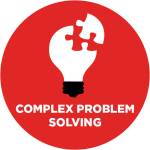 When working through a learning activity, the practical act of problem-solving is a good strategy. Problem-solving, as an approach, can give a learning activity more meaning and motivation for you, as a learner. Whenever possible, it is to your advantage to turn an assignment or learning task into a problem you are trying to solve or something you are trying to accomplish.
When working through a learning activity, the practical act of problem-solving is a good strategy. Problem-solving, as an approach, can give a learning activity more meaning and motivation for you, as a learner. Whenever possible, it is to your advantage to turn an assignment or learning task into a problem you are trying to solve or something you are trying to accomplish.
In essence, you do this by identifying the purpose for the assignment (other than just completing the assignment itself). If you are assigned the task of creating a master calendar of all your due dates in all your courses this term, how can you do this in a meaningful way that will help you make good decisions about completing work? What tool would work best for YOU? What information should you add to the calendar beyond what is required in the assignment to help you be successful? How can you use this calendar to help communicate with your boss or family about your school commitments?
Make It Occupation Related
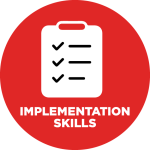
 Much like making assignments problem centred, you will also do well when your learning activities have meaning for your profession or major area of study. This can take the form of simply understanding how the things you are learning are important to your occupation, or it can include the decision to do assignments in a way that can be directly applied to your career. If an exercise seems pointless and possibly unrelated to your long-term goals, you will be much less motivated by the learning activity.
Much like making assignments problem centred, you will also do well when your learning activities have meaning for your profession or major area of study. This can take the form of simply understanding how the things you are learning are important to your occupation, or it can include the decision to do assignments in a way that can be directly applied to your career. If an exercise seems pointless and possibly unrelated to your long-term goals, you will be much less motivated by the learning activity.
An example of understanding how a specific school topic impacts your occupation future would be learning what is required in a subject line of an email. At first, this may seem like a tedious thing to have to master, but if you recognizes that subject lines communicate information that allows the reader to sort and organize information and reply quickly, you start to see the value of practicing this skill while in college.
In fact, consider a human resources department who has several job ads published looking for employees in various departments. Job postings may be coded or numbered, and the job ad may require that you put the job posting number in the subject line so your resume can be reviewed. Incomplete, incorrect or missing information in the subject line may mean your application never gets reviewed.
Making these types of connections will help you find value in your everyday learning.
Group work will be part of your college experience. Working in groups for class assignments allows you to practice your social intelligence, complex problem solving, resilience, novel and adaptive thinking, implementation, self-directed learning and global intelligence. Taking a leadership role in a group will allow you to not only learn more about yourself, but help you reflect on what motives others to work together.
Make the Most of Your Time
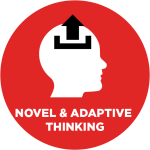 One of the most common complaints of college students is that there are too many things to do, and not enough time. Because of this, we must become efficient with our use of time, and it is important that we maximize our learning activities to be most effective. In fact, time management is so important that there is an entire chapter in this text dedicated to it. When you can, refer to that chapter to learn more about time management concepts and techniques that can be very useful.
One of the most common complaints of college students is that there are too many things to do, and not enough time. Because of this, we must become efficient with our use of time, and it is important that we maximize our learning activities to be most effective. In fact, time management is so important that there is an entire chapter in this text dedicated to it. When you can, refer to that chapter to learn more about time management concepts and techniques that can be very useful.
Make Fanshawe Faculty Your Partners in Learning
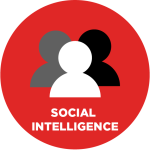 In your early years in school, students come to expect their teachers to tell them what to do, how to do it, and when to do it. College learners, on the other hand, seem to work better when they begin to think of their instructors as respected experts that are partners in their education.
In your early years in school, students come to expect their teachers to tell them what to do, how to do it, and when to do it. College learners, on the other hand, seem to work better when they begin to think of their instructors as respected experts that are partners in their education.
The change in the relationship for you as a learner accomplishes several things:
- it gives you ownership and decision-making ability in your own learning,
- it enables you to personalize your learning experience to best fit your own needs,
- it gives your instructors the opportunity to help you meet your own needs rather than focusing on trying to get information to you.
The way to develop learning partnerships is through direct communication with your instructors and Fanshawe supports.
Whether you are communicating in person or by email, if there is something you do not understand or need to know more about, go directly to them.
Video: Student Success at Fanshawe – Library Learning Commons
Video: “Student Success at Fanshawe | Library Learning Commons” by Fanshawe College [2:03] Transcript Available.
When you have ideas about how you can personalize assignments or explore areas of the subject that interest you or better fit your needs, ask your professor about it. By demonstrating that you are taking a direct interest in your own learning most instructors will gladly become a valuable resource in your educational and career development.
“2.7 Take Action – Take Charge of Your Learning Experience” from Fanshawe SOAR by Kristen Cavanagh is licensed under a Creative Commons Attribution-NonCommercial-ShareAlike 4.0 International License, except where otherwise noted.

